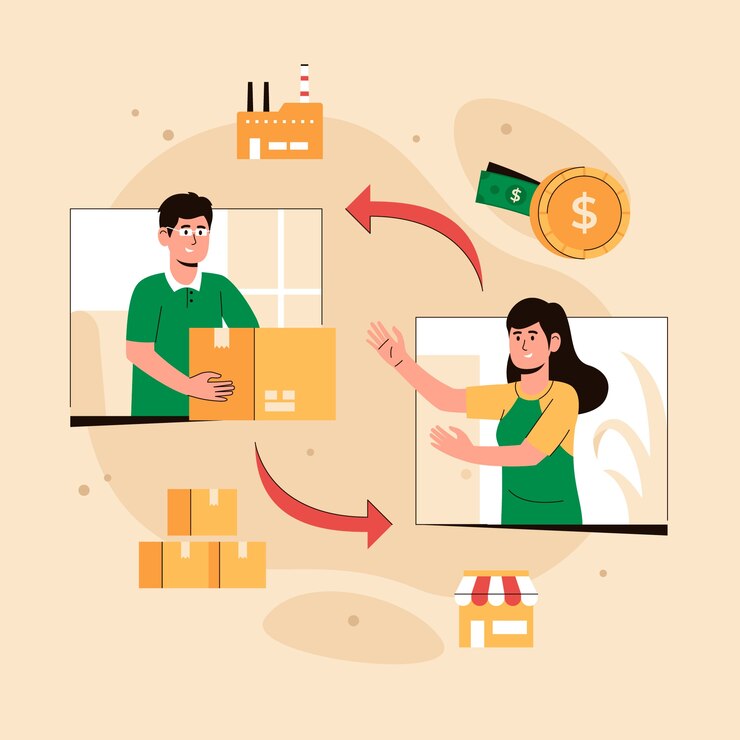
Outsourcing vs. In-House Order Fulfillment: Which is the Best?
Order fulfillment is the bloodline that keeps ecommerce businesses thriving.
As an e-commerce entrepreneur, one of the critical decisions you’ll face is whether to handle order fulfillment in-house or entrust it to a third-party logistics (3PL) provider like Codirect Courier.
Each option comes with its own set of pros and cons, and choosing the right approach can significantly impact your revenue and customer satisfaction.
In this blog post, we explore the pros and cons of outsourcing versus in-house fulfillment to help you make an informed decision for your business.
Outsourcing Order Fulfillment
Outsourcing eCommerce order fulfillment to a specialized logistics provider often seems like a breath of fresh air for many e-commerce businesses.
Advantages of Outsourcing Order Fulfillment
Here are some compelling reasons why you may want to outsource order fulfillment for your eCommerce business:
1. Expertise and Resources
Third-party logistics (3PL) providers are experts in their field. They’re often equipped with the latest technology and know-how on how to fulfill orders efficiently.
Outsourcing enables you to tap into their expertise, ensuring a smooth and efficient order fulfillment process even if you’re not a logistics expert yourself.
2. Scalability
As your business expands, so do your fulfillment needs.
Outsourcing provides scalability, allowing you to easily adapt to fluctuations in order volume without the headache of managing additional warehouse space, staff, or technology upgrades.
3. Cost Efficiency
Outsourcing order fulfillment can be more cost-effective, especially for small to medium-sized businesses.
With a 3PL, you share the costs of labor, facilities, and technology with other businesses, potentially reducing your overall expenses.
4. Focus on Core Competencies
By letting a 3PL handle fulfillment, you free up time and resources to concentrate on what you do best.
It leaves you more time to grow your e-commerce business, develop new products, and enhance your marketing strategies.
Disadvantages of Outsourcing:
Outsourcing order fulfillment to a 3PL has a few associated disadvantages. Some of them include:
- Loss of Control: You may have less control over the order fulfillment process, potentially leading to communication challenges and issues with quality control.
- Dependency on Third Party: Relying on an external provider makes the business vulnerable to the fulfillment company’s performance and potential disruptions in its operations.
- Less Customization: Fulfillment providers may have standardized processes that may not align perfectly with the specific needs or branding of the business.
In-House Order Fulfillment
Some businesses prefer employing a team to handle their own order fulfillment without involving a 3rd party logistics company.
Like outsourcing, in-house order fulfillment also has its set of advantages and disadvantages.
Advantages of In-house Order Fulfillment
1. Control Over Quality
In-house fulfillment gives you direct control over every aspect of the fulfillment process, ensuring that your brand’s quality standards are met.
This control is vital for businesses with a strong emphasis on customer experience and brand reputation.
2. Flexibility and Customization
In-house fulfillment allows you to tailor processes to meet the unique needs of your products and customers.
You have the flexibility to implement changes quickly, adapt to new trends, and experiment with different fulfillment strategies.
3. Immediate Oversight
With in-house fulfillment, you have immediate visibility into your inventory and order status.
Real-time monitoring enables you to respond promptly to issues, track shipments, and provide accurate information to your customers.
Disadvantages of In-house Order Fulfillment
Here are some of the limitations you may face from handling your own order fulfillment in-house:
- Higher Initial Investment: Setting up and maintaining an in-house fulfillment operation can require significant initial investment in facilities, equipment, and personnel. This may result in more overhead costs in your business operations.
- Limited Scalability: As your business grows, scaling an in-house operation can be challenging and may require additional investments in infrastructure and personnel.
- Expertise Requirements: Managing fulfillment in-house demands expertise in logistics, technology, and warehouse management, which may not be your business’s core competency.
- Potential for Inefficiency: Without the expertise and efficiencies gained from specialization, in-house fulfillment may be less efficient than outsourcing.
Which is the Best for Your Business?
So, which path should you choose for your e-commerce business?
The decision between outsourcing to order fulfillment companies and in-house fulfillment depends on various factors, including:
- The nature of your products
- Your business scale
- Your Fulfillment budget
- Your long-term growth strategy
Carefully weigh the pros and cons, consider your business’s specific requirements, and choose a fulfillment strategy that propels your e-commerce venture toward success.
Whether you choose to outsource your order fulfillment or keep it in-house, remember that flexibility and adaptability are crucial in the dynamic world of e-commerce.
If you decide to outsource, contact Codirect Courier for some of the best order fulfillment services, including warehousing services, express couriers, last-mile delivery, and pick-pack fulfillment.
We have a reliable team of experts that around the clock to make your customers happy and help your business grow faster!


